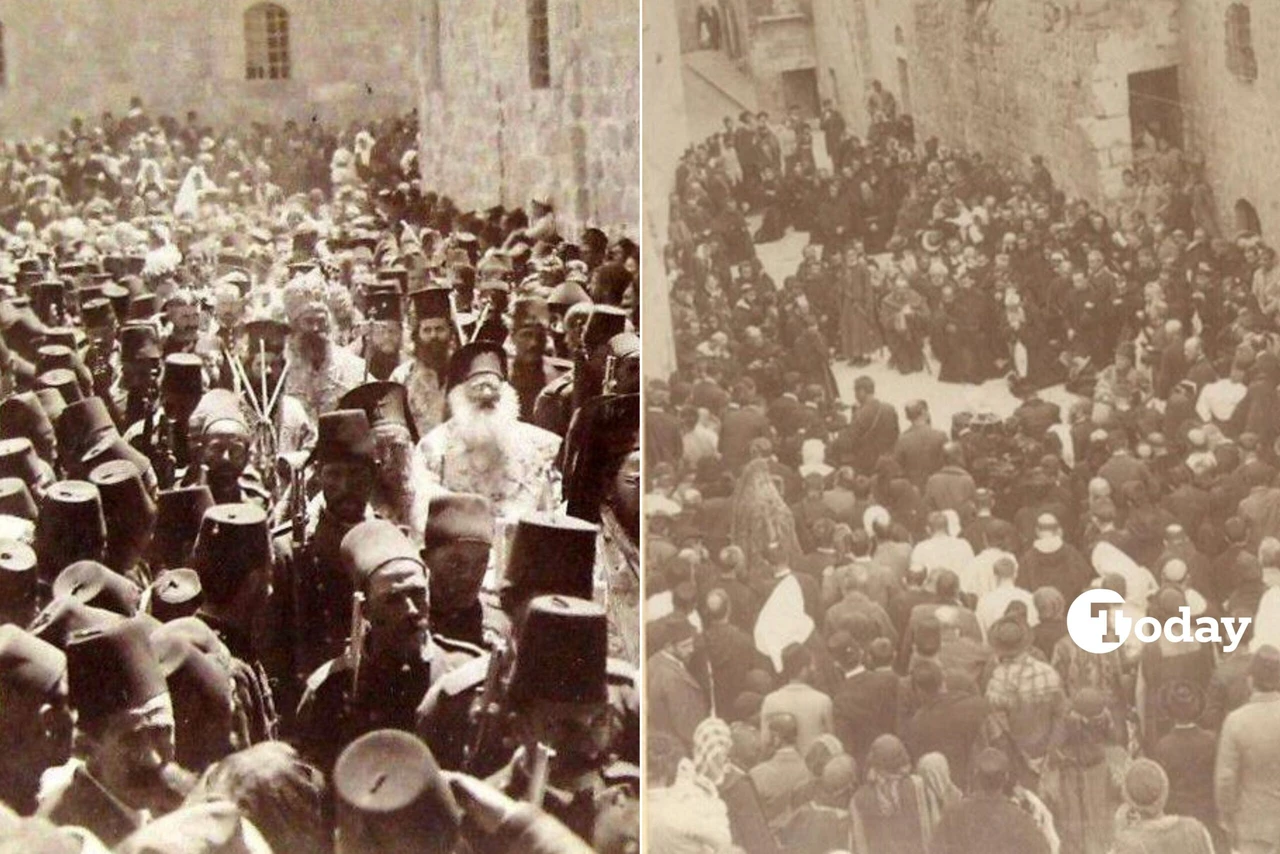Erzurum upholds 500-year-old ‘1001 Hatim’ tradition for spiritual protection
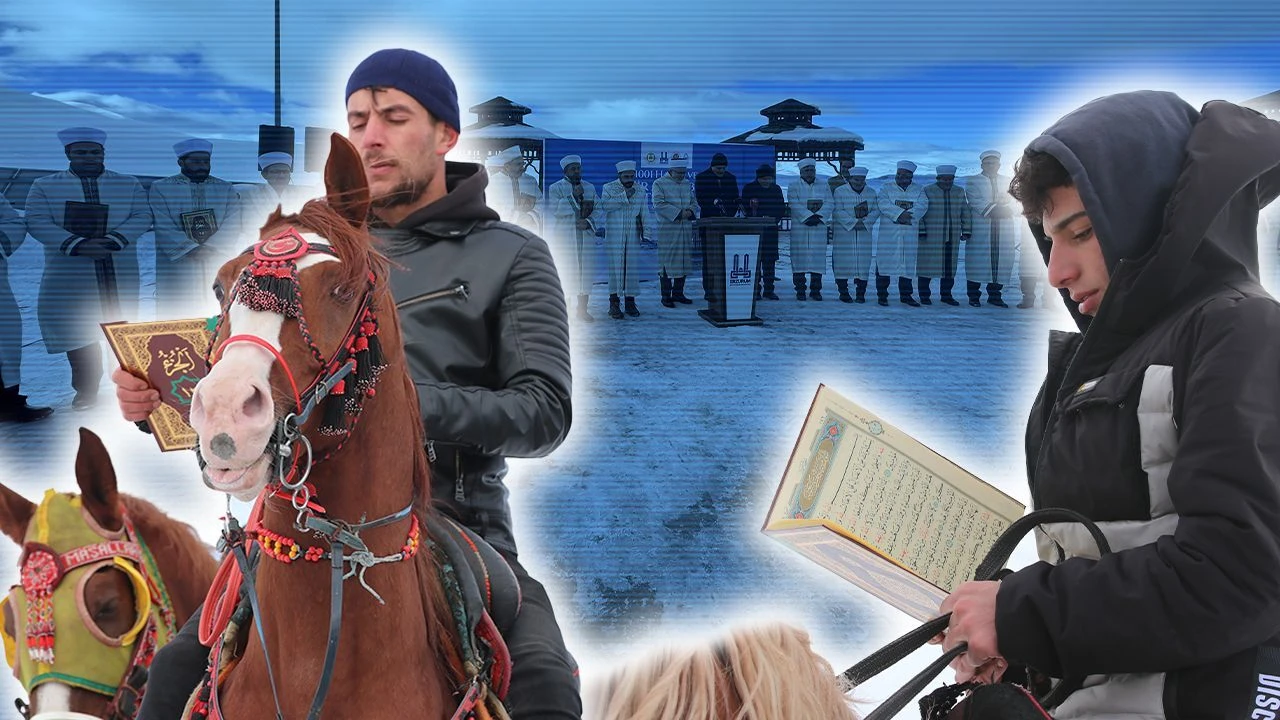 Those continuing the "1001 Hatim" tradition on horseback, Erzurum, Türkiye, December 13, 2024. (Photo via Türkiye Gazetesi)
Those continuing the "1001 Hatim" tradition on horseback, Erzurum, Türkiye, December 13, 2024. (Photo via Türkiye Gazetesi)
The 1001 Hatim tradition, initiated by the renowned Islamic scholar Pir Ali Baba in the 16th century, has been carried out for nearly five centuries in Erzurum, Türkiye.
The ritual, which aims to protect the city and the nation from disasters and hardships, is now completed each year with prayers at the Ulu (Grand) Mosque.
Tradition of faith and protection
For a month, the people of Erzurum have been coming together to read the Quran in the city’s historical mosques, starting before the Fajr prayer and continuing throughout the day. This year, the ritual culminates with a special prayer session following the Friday prayers on Jan. 17. The tradition is so deeply embedded in the local culture that the entire city has experienced a second Ramadan-like atmosphere, with local businesses and homes also participating in the recitation.
Rustem Can, Erzurum’s Mufti, shared that the 1001 Hatim tradition, started by Pir Ali Baba more than 500 years ago, is a spiritual shield meant to protect the city and the nation from calamities.
“The purpose of this tradition, which began with Pir Ali Baba in the 1500s, is to shield our land from all forms of suffering and misfortune,” Can explained. “The tradition has endured for nearly 500 years in Erzurum, continuing every year with great devotion.”
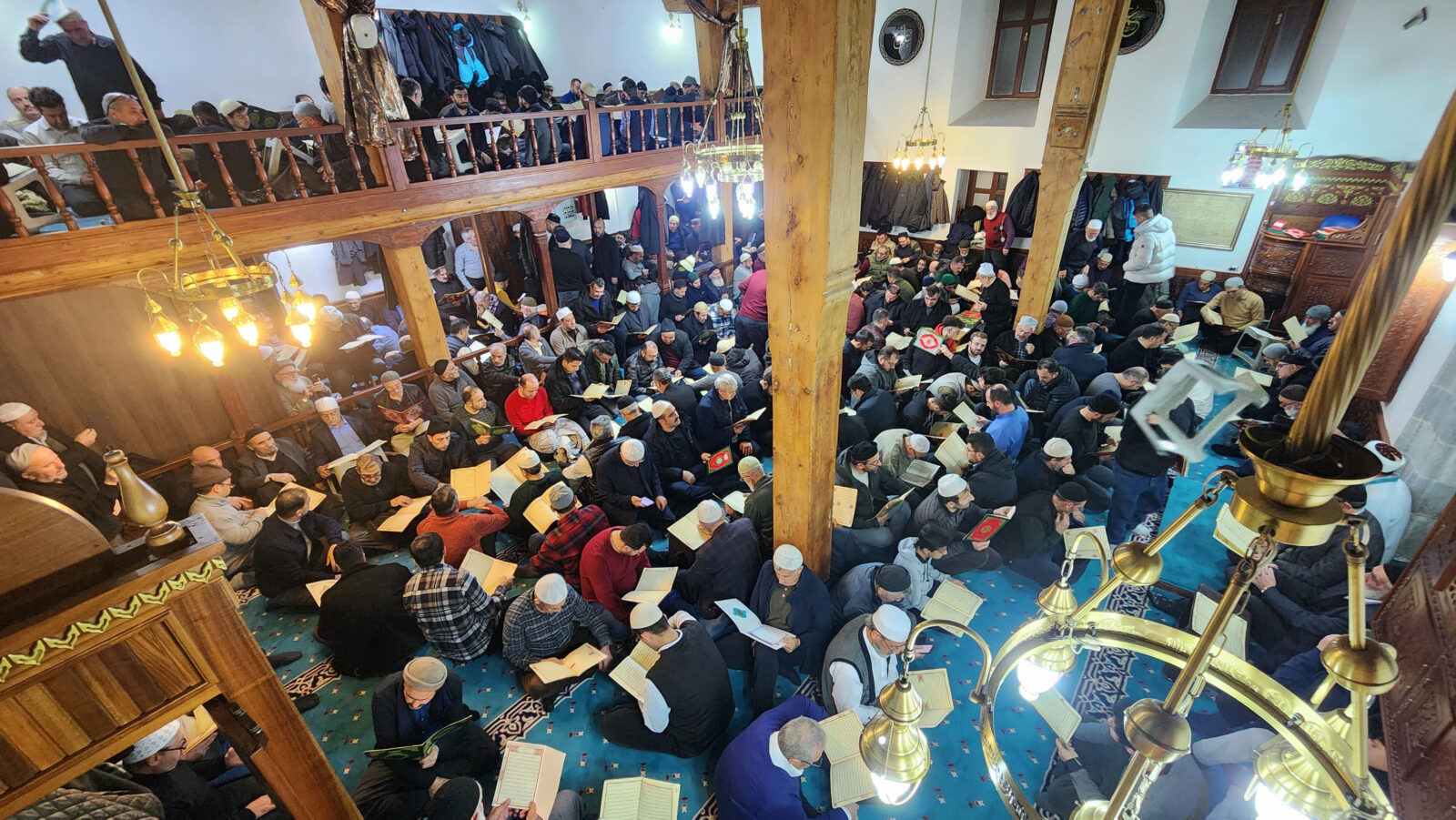
Atmosphere of blessing
The city’s mosques have been filled with the sound of the Quran during the monthlong recitations. Mufti Can highlighted that Erzurum’s deep connection to the Quran is reflected in the fact that the locals truly cherish the reading of Allah’s word.
“In Erzurum, when the Quran is read, there is a blessed atmosphere,” said Can. “The people here understand the significance of the Quran and love it deeply.”
Ulu Mosque hosts 2 special ceremonies
On Friday, Jan. 17, the Ulu Mosque host the grand conclusion of the 1001 Hatim ceremony, beginning at 9 a.m. The ceremony will include recitations of the Quran, including prostrations, and speeches by prominent figures, including Burhan Isleyen, deputy director of the directorate of religious affairs.
“We invite both men and women to attend and join us in this Qur’anic feast of blessings,” Can said, encouraging everyone to be part of this significant event.
On Saturday, Jan. 18, a separate ceremony will be held for women, starting at 9 a.m. and ending at noon with special prayers.
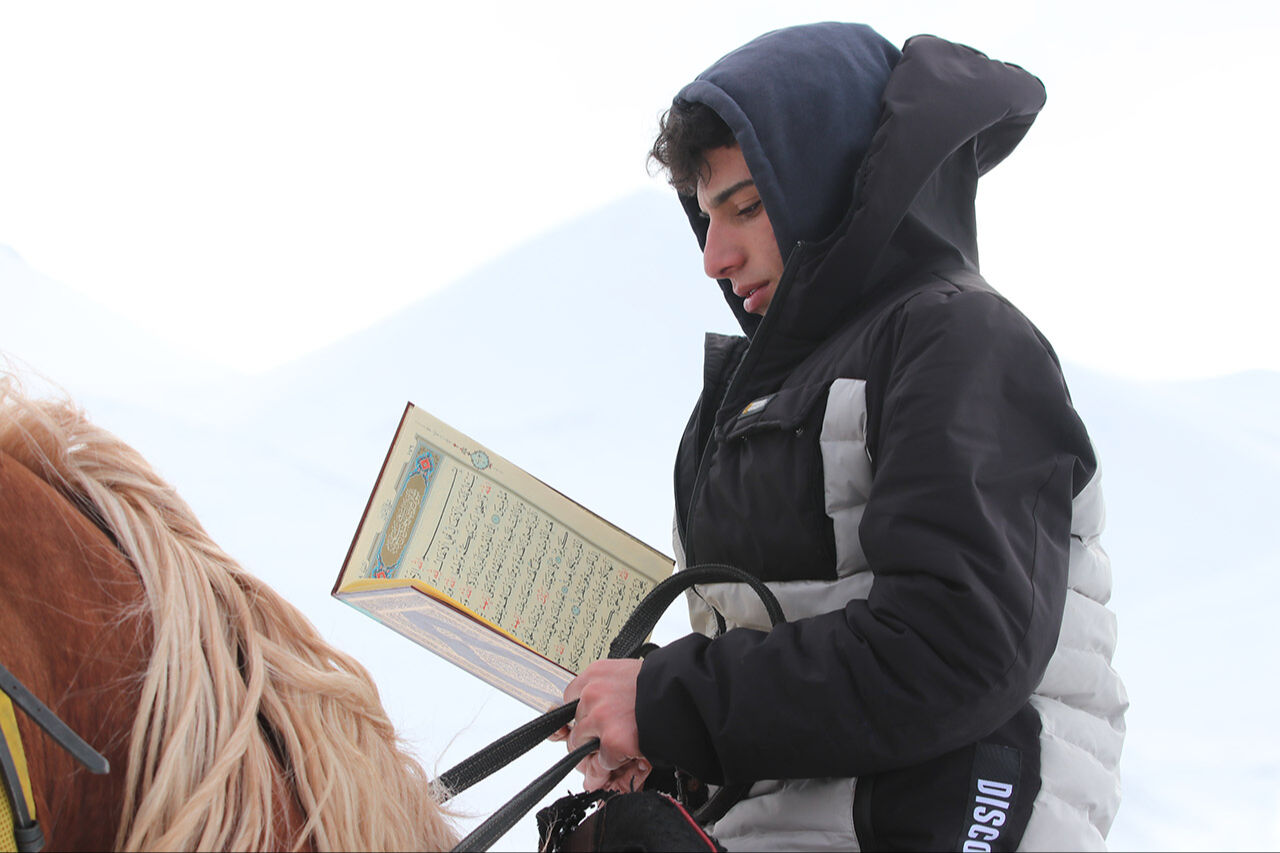
A season of blessings
The month-long 1001 Hatim recitation is described as a season of immense spiritual blessings. Can also referred to this time as a “preparation” for the holy month of Ramadan, as it embodies the spirit of seeking divine favor and protection. He emphasized that in addition to the recitations, local scholars provide detailed explanations of the Quranic verses, enriching the experience for all attendees.
Continuing legacy of Pir Ali Baba
The 1001 Hatim tradition continues to be an important cultural and spiritual practice for the people of Erzurum. Governor Mustafa Ciftci expressed his pride in the city’s dedication to this time-honored ritual.
“We began our recitations on December 13, and they will conclude on January 17,” he said. “This is a significant event that brings the community together and strengthens our spiritual connection.”
Reaching new milestones in hatim recitations
The tradition’s growth continues, with this year’s goal set to exceed last year’s record of 71,000 Hatims, aiming for 80,000. Erzurum’s leadership and the community are committed to ensuring that this sacred practice endures for generations to come.
Erzurum Mayor Mehmet Sekmen emphasized the role of religious traditions in shaping the city’s identity.
“This 500-year-old tradition has been passed down through generations,” he said. “It is a source of pride for Erzurum, and we remain devoted to preserving it.”
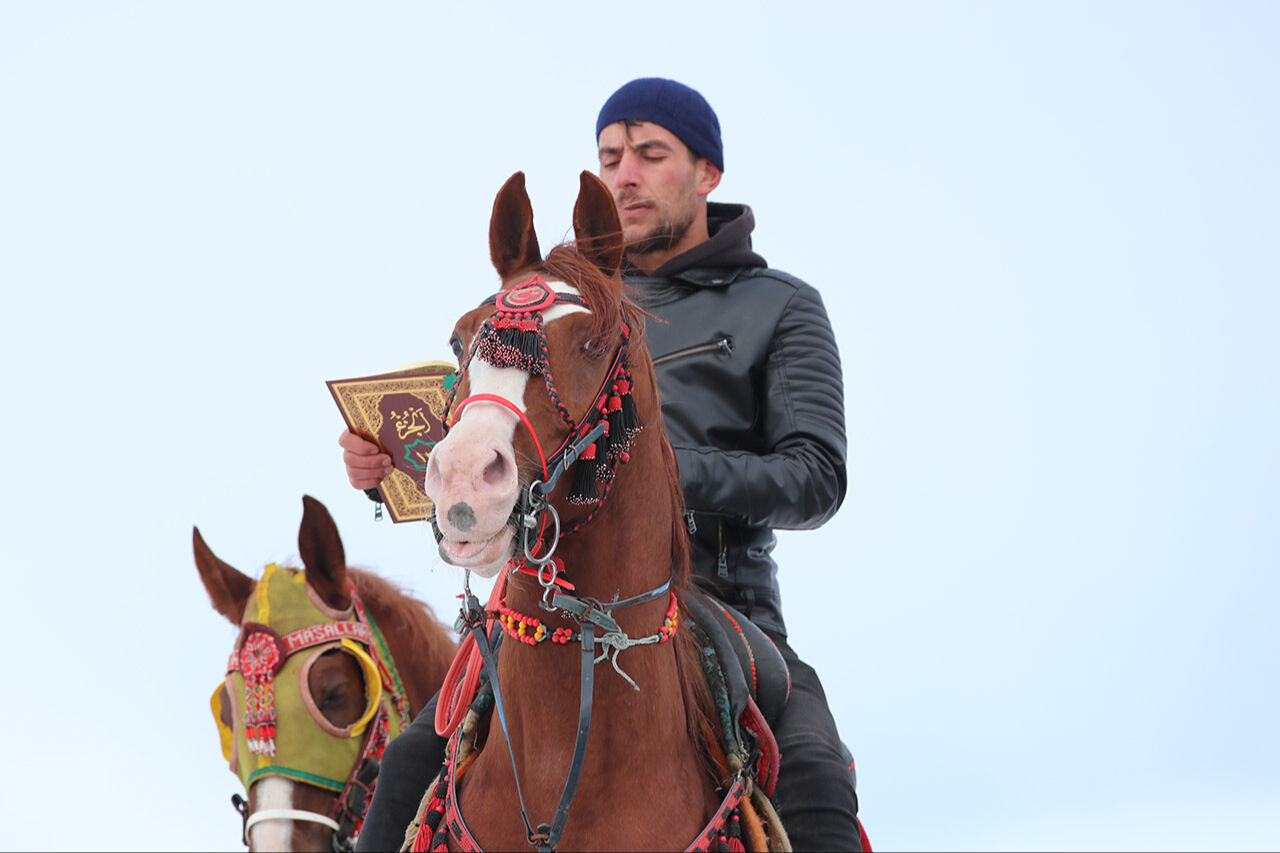
1001 Hatim’s historic ceremony and opening of Pir Ali Baba’s Tomb
The ceremony at Pir Ali Baba’s tomb, which continues to be a focal point for the Hatim recitations, also marked the opening of a newly constructed shrine dedicated to the scholar. The city’s residents and visitors alike gather to honor Pir Ali Baba’s legacy and the enduring power of the Qur’an in their lives.

